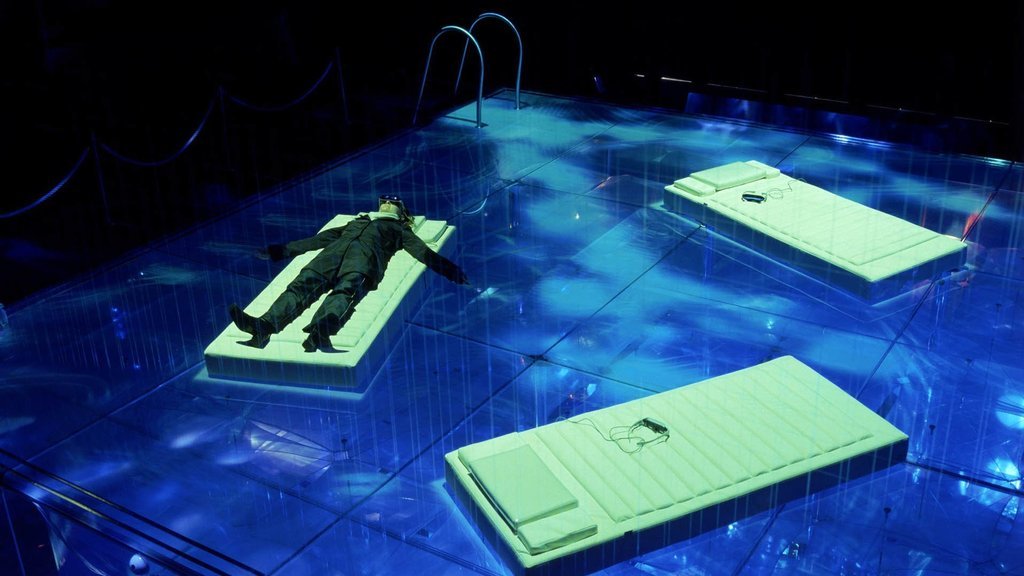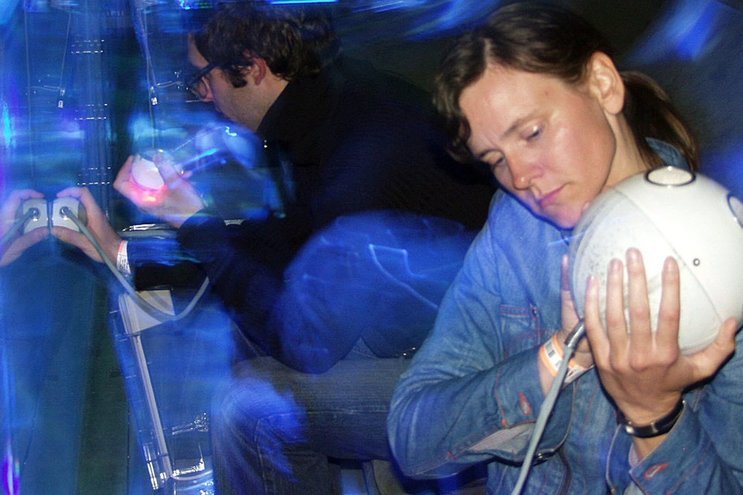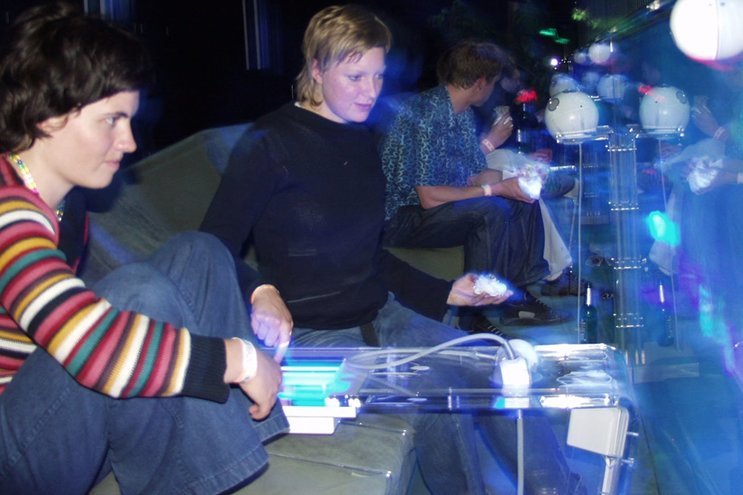Drift at Cyberhelvetia
The Cyberhelvetia pavilion was situated on the Forum of the Biel-Bienne Arteplage at the Expo.02 in Switzerland in 2002. The exhibition was open for five months and attracted more than 750,000 visitors.
Designed as a traditional Swiss bathing resort, its architecture symbolizes a place where people meet and communicate. Instead of a swimming pool, they find a mysterious, glowing glass cube that lights up the entire area.
The design group 3deluxe was responsible for all of the interior design and contracted MESO to develop various interactive games matching the mood of the swimming pool. The result is a fluid composition of interactive situations consisting out of 18 projectors, 23 computers, and numerous sensors dispersed in the room. The system reacts to sound, motion, voice, and the weather outside.
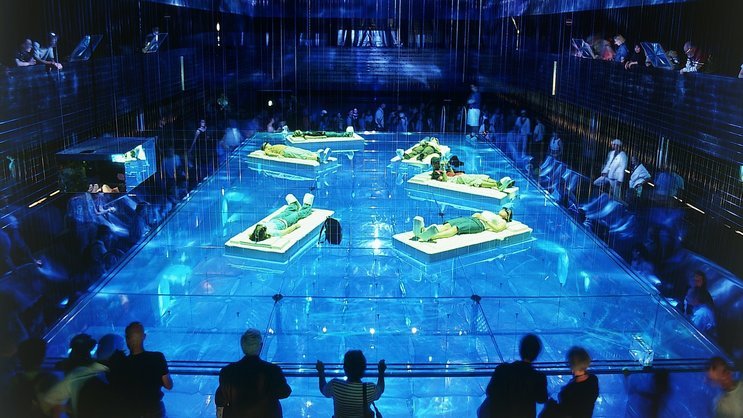
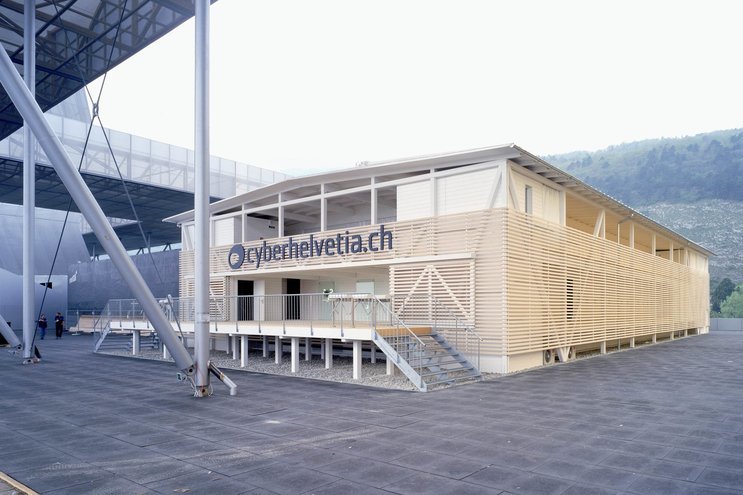
The familiar exterior leads you to expect a familiar interior: a swimming pool like the one which was right in this very place more than a hundred years ago. But times have changed, people can communicate at many different levels without meeting each other in person, irrespective of where they are or what language they speak. Instead of bathing in real water, the bathers in the Cyberhelvetia pavilion can immerse themselves in the complex atmosphere of an expanded virtual bath.
The glass pool in the middle of the exhibition replaces the real swimming pool. It is filled with virtual water which is enriched by the exhibition visitors; both on site or on the Internet with imaginative lifeforms. Along both long sides of the pool there are comfortable seating facilities for the bathers who shape the inner life of the pool in their common game. A peaceful lounging area provides space for relaxation and direct encounters between people, while other guests can observe what is going on from two upstairs galleries.

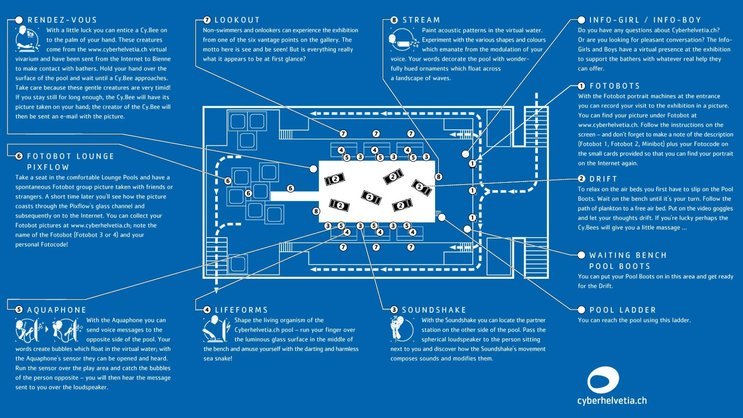
The reciprocal interaction between the actually and virtually present people and the artificial lifeforms constantly creates new atmospheric images on the pool’s surface. The virtual water reacts to the data on climatic conditions from a weather station on the pavilion roof. Like the surface of Lake Bienne, the artificial surface of the water also changes its appearance during the course of the day and seasons and, thus, links the artificial with the natural.
On two diagonally opposed corners of the pool there are transparent, luminous objects which prompt visitors to speak into them. This vocal experiment will create swarms of swirling digital organisms which swim across the waves of the pool.
We developed the aquaphone, a cross between tin-can telephone and a stethoscope. It consists of a earpiece and a mouthpice with a talk/listen button. The aquaphones allowed verbal communication between visitors through the glass pool. By holding an aquaphone against the glass cube’s side wall and speaking into it, word bubbles are created. These can then be found and played back at another place with another aquaphone.
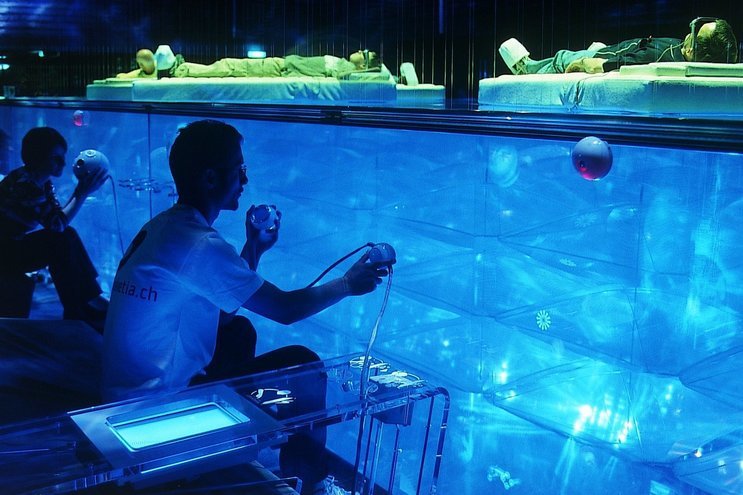
Communication fragments can also be heard with the soundshake. This leather clad ball played back sound fragments from the aquaphones, which are composed and modified by the movement of the loudspeaker. When bathers pass on the ball shaped loudspeaker to their neighbors, different sounds are created.
A digital sea-snake darts around, following the visitors’ finger movements, on a luminous glass surface which is integrated in the center console of the bench. The actions and dynamics of the guests’ playing are thus transferred to the pool’s glass body. Left alone, the snake gets a dynamic of its own and starts to dabble.
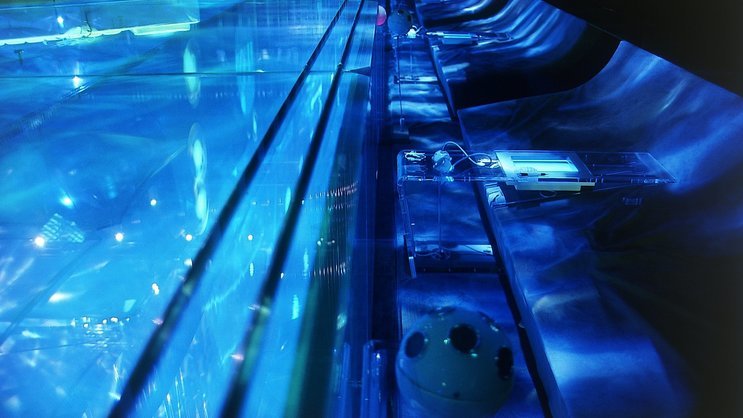
acrylic consoles with aqua phones
© 3deluxeThe exhibition shows how the virtual world has long since found its way into our everyday lives and changed our communication. Reality and virtuality mix, are often difficult to distinguish. The two worlds grow together, and we have to determine our place in it.
Behind the scenes
Making-of
Cyberhelvetia was using the graphics frontend of the vvvv render engine for the first time.
Read the whole story on software engineering the multi-purpose toolkit vvvv.
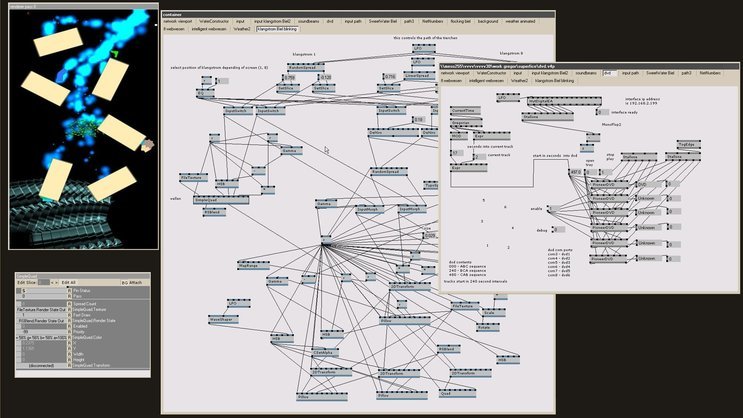
the pool simulation running with vvvv30alpha1
© MESO Digital Interiors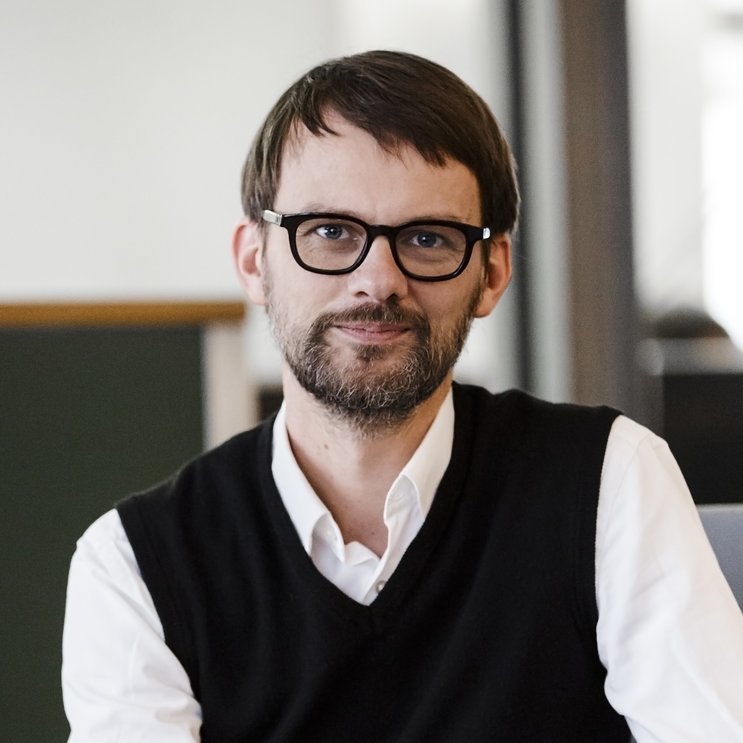
Curious about our approach? Feel free to get in touch!
Sebastian Oschatz Partner +49 69 24 000 321 sebastian.oschatz@meso.design sebastian.oschatz@meso.design +49 69 24 000 321
MESO Digital Interiors GmbH
Gutleutstr. 96 . 60329 Frankfurt . Germany
Team
Max Wolf, Joreg, Sebastian Gregor, Jörg Obenauer, Stefan Ammon, Michael Höpfel, Christian Strobel, Ekkehard Ehlers
